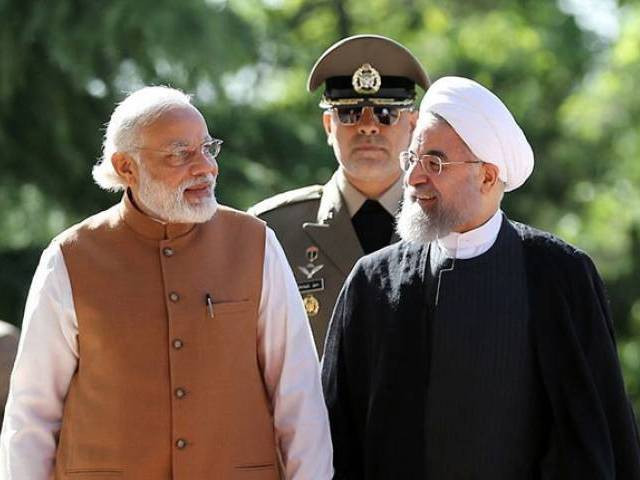India kicked out of Chabahar rail project
Move comes as Iran finalises 25-year strategic partnership deal with China worth $400b

Iran on Tuesday dropped India from a vital project – construction of a rail line from Chabahar Port to Zahedan along the Iran-Afghan border – citing concerns over delays and funding, the Indian daily The Hindu reported.
Iran and India had signed an agreement to construct a rail line from Chabahar Port to Zahedan in May 2016.
The Iranian Railways will now proceed without India’s assistance, using approximately $400 million from its own National Development Fund.
The development came as Iran finalised a 25-year strategic partnership deal with China worth $400 billion. Tensions between New Delhi and Beijing hit an all-time high after the recent border standoff between the two countries. At least 20 Indian soldiers had lost their lives in the worst border clash with China in over 40 years at the Galwan Valley in Ladakh last month.
Besides, one of the main reasons behind not starting the Chabahar project for the last four years despite signing the agreement was that India feared US sanctions. However, China has no such fears.
The entire project is expected to be completed by March 2022.
The Indian National Congress on Tuesday hit out at the Bharatiya Janata Party-led government, calling the fallout of the deal a big loss for the country.
“India dropped from Chabahar Port deal,” Member of Parliament Abhishek Singhvi tweeted. “This is the diplomacy of the Modi government that won laurels even without getting the work done, China worked quietly but gave them a better deal. Big loss for India. But you can’t ask questions.”
Last week, Iranian Transport and Urban Development Minister Mohammad Eslami inaugurated the track-laying process for the 628km Chabahar-Zahedan line, which will be extended to Zaranj across the border in Afghanistan.
The railway project which was, originally, to be undertaken by the Iranian Railways and the Indian Railways Construction Ltd (IRCON), was believed to be a key component of the trilateral agreement between Iran, India and Afghanistan.
Prime Minister Narendra Modi, during his May 2016 visit to Tehran, had signed the Chabahar agreement with Iranian President Hassan Rouhani and Afghan President Ashraf Ghani, with a memorandum of understanding (MoU) also inked between IRCON and the Iranian Rail Ministry. Under the terms of the MoU, IRCON was to conduct all the work on the rail line, and finance the entire project.
25-year strategic partnership
Meanwhile, complicating matters further, Iran and China are close to finalising a 25-year strategic partnership which will include Chinese involvement in Chabahar’s duty free zone, an oil refinery nearby, and possibly a larger role in Chabahar port as well, The Hindu reported.
According to leaked versions of the 18-page ‘Comprehensive Plan for Cooperation between Iran and China’ being finalised by officials in Tehran and Beijing, the cooperation will extend from investments in infrastructure, manufacturing and upgrading energy and transport facilities, to refurbishing ports, refineries and other installations, and will commit Iranian oil and gas supplies to China during that period.
Iranian officials denied a report that also suggested Chabahar port, where India took, will be leased to China. However, Iran had proposed a tie-up between Pakistan’s Gwadar Port and Chabahar last year, and offered interests to China in the Bandar-e-Jask port, 350km from Chabahar, as well as in the Chabahar duty free zone.
Each of those possibilities should be watched closely by New Delhi, said former Indian ambassador to Iran, KC Singh. “[The Iran-China deal] impinges on India’s ‘strategic ties’ with Iran and the use of Chabahar port. Jask lies to west of Chabahar and right before Straits of Hormuz. China would thus extend its control along the Pakistan-Iran coast,” he cautioned.


















COMMENTS
Comments are moderated and generally will be posted if they are on-topic and not abusive.
For more information, please see our Comments FAQ